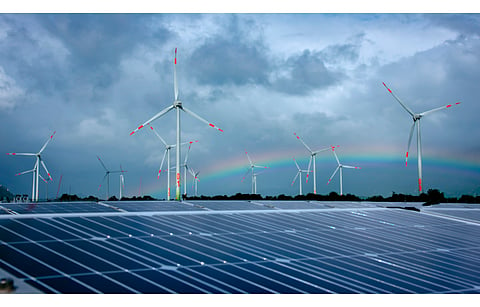

Amidst its ongoing war against Ukraine, Russia has decided not to hold renewable energy auctions in the country this year and via a decree has announced May 1, 2023 as the next date, according to the Association for the Development of Renewable Energy (ARVE).
As per Decree no. 999 dated June 1, 2022, the government will not go ahead with competitive selection of renewable energy projects in the wholesale and retail markets planned to be held by December 1, 2022. However, it will not have any bearing on projects already selected.
ARVE, also referred to as the Russian Renewable Energy Development Association (RREDA), said, "According to the Decree , amendments were made to some acts of the Government of the Russian Federation on the issues of competitive selection of investment projects for the construction of generating facilities operating on the basis of the use of renewable energy sources in the wholesale and retail electricity markets and on the establishment of certain features of state regulation of prices (tariffs) in the power industry in 2022 and 2023."
According to the Director of the Department of Power Industry Development under the Russian Energy Ministry, Andrey Maksimov this postponement will give time to investors to decide on their corporate strategies and debug their supply chain for components.
The association asserted that while there is full confidence that in the near future investors and participants will cope with all the problems associated with the geopolitical situation, more still needs to be done.
"In the RES segment, serious work is underway to restore the pace of development, which is aimed at reconfiguring logistics routes, building a new system for the supply of components and equipment. According to preliminary estimates, the transition period may last about a year," it added.
This is the 2nd time the government has delayed the auction process this year. Previously in March 2022, the auction process was delayed by 6 months to the end of 2022, from May-June 2022.
Last time, the delay was in response to the request of ARVE that cited challenges for investors to secure financing, equipment, raw materials and consumables. Back then the association had observed, "The most important parameters of the RES generation support program are the localization of equipment production and subsequent export, in the context of Russia's isolation from world trade, both aspects are of serious concern today and require additional elaboration."
Meanwhile, Russian dominance as a major oil and gas supply to the Western world is now threatened as the European Union members and the US have taken a stand to move away from the same, boosting their renewable energy generation and also working on finding alternative suppliers with the target to get independent form Russian energy imports. The European Commission recently proposed to up the 2030 renewables target to 45%, from the current Fit for 55 proposal of 40% and also released a first solar strategy along with its REPowerEU package, increasing the solar installation target to 600 GW AC (750 GW DC) (see EU Announces 600 GW AC Solar Target By 2030).
Back in September 2021, Russia selected 2.7 GW of renewable energy capacity in an auction with 775 MW of solar power capacity (see Russia Awards 775 MW Solar In RE Auction).
